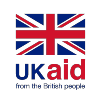This Emerging Evidence Report gathers and analyses evidence on informal labour intermediaries (ILIs) involved in facilitating the worst forms of child labour in three countries – Bangladesh, Nepal, and Myanmar. More specifically, it attempts to identify who the ILIs are and how they work, and what interventions exist to address them. A systematic literature review was conducted, focusing on academic and grey literature from various sources within the last ten years. Findings showed that ILIs are mostly individuals known and close to the child. They can be parents, siblings, relatives, neighbours, friends, village members, influential figures in the community, etc. To some extent, ILIs and their modes of operating vary according to the work sector and location. Their roles and motives also differ; some are exploitative while some are well-intentioned. Most existing interventions have targeted the more formal recruitment agencies at the upper end of the labour supply chain, while the more informal intermediaries remain largely unaddressed.
Cite this publication
Yunus, R.M. (2020) Addressing Informal Labour Intermediaries in the Context of Child Labour: Evidence Review Across Nepal, Bangladesh, and Myanmar, CLARISSA Emerging Evidence Report 3, Brighton: Institute of Development Studies
 Download full article
Download full article